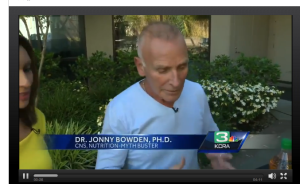I grew up Catholic and still go to church every Sunday with my family. I remember my father dragging me out of bed every Sunday to attend mass. Then afterwards, in the true Italian spirit, we would have a massive feast with extended family, heavy on the carbs, great time.
During mass, I was never a huge fan of everyone sipping out of the same wine goblet, always found that gross, but never thought of gluten in the communion bread, especially for those with Celiac disease.
The New York Times report:
The unleavened bread that Roman Catholics use in the celebration of Mass must contain some gluten, even if only a trace amount, according to a new Vatican directive.
The directive, which was dated June 15 but received significant attention only after it was reported by Vatican Radio on Saturday, affirms an existing policy. But it may help to relieve some of the confusion surrounding church doctrine on gluten, a protein that occurs naturally in wheat and has become the subject of debates over nutrition and regulation.
The issue is especially urgent for people with celiac disease, a gastrointestinal immune disorder that causes stomach pain, diarrhea and weight loss and that can lead to serious complications, or for those with other digestive conditions that make them vulnerable even to small amounts of gluten.
Many other people who do not have celiac disease may nonetheless have a sensitivity or allergy to gluten, and yet others have adopted a gluten-free diet in the belief that it is healthier — although science is far from clear on this point.
In both the United States and the European Union, the description “gluten-free” can be legally applied to foods made with wheat starch from which almost, but not absolutely, all gluten has been removed — the upper limit is 20 parts per million. The Catholic church will allow bread of this kind to be used for communion.
But it will not allow truly gluten-free altar breads made with rice, potato, tapioca or other flours in place of wheat. (The Anglican Communion has taken a similar position, while some other Christian denominations consider such breads acceptable.)



 Gluten can also be found as a food additive in the form of flavoring, or as stabilizing or thickening agent. In such cases, producers are not required to include the protein on the label because it is classified as GRAS (Generally Recognized as Safe) by the
Gluten can also be found as a food additive in the form of flavoring, or as stabilizing or thickening agent. In such cases, producers are not required to include the protein on the label because it is classified as GRAS (Generally Recognized as Safe) by the